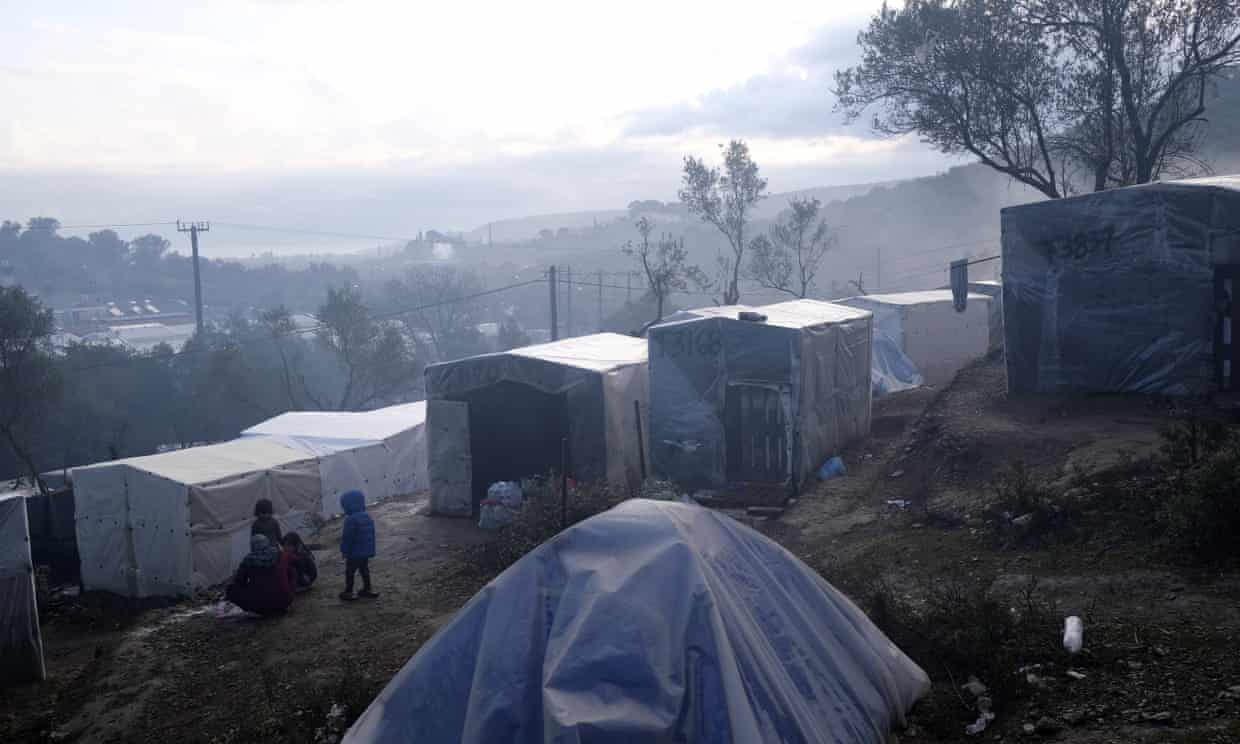
Greece
Greece defends anti-migrant floating barrier amid growing criticism
Minister says barrier would send message to smugglers that ‘rules of the game have changed’
by Helena SmithThe Greek government has defended plans to erect a floating barrier in the Mediterranean to deter thousands of people determined to reach Europe from making the sea journey from Turkey.
Dismissing criticism, the country’s minister for migration and asylum, Notis Mitarakis, said the proposed barrier in the Aegean Sea would send a strong message to people smugglers that the “rules of the game had changed”.
The bulwark, which in its initial stages will be 2.7km long, is to be erected off Lesbos, the island at the centre of migrant and refugee arrivals. It will rise from pylons 50 metres above water.
“First of all it will send the message that we are not a free-for-all place where anything goes, that we’re taking every measure to protect our borders,” Mitarakis told local radio station Thema 104.6. “We see it as a positive measure that will help monitoring of areas near Turkish shores.”
Deportations, he said, would also be accelerated, signalling the much tougher approach Athens’ centre-right administration was willing to take on an issue it said had reached “crisis” proportions, not least in vastly overcrowded camps on Greek Aegean islands.
“The rules have changed. We are not open to people who don’t have the profile of a refugee,” added Mitarakis, who said 72,000 men, women and children had arrived in Greece in 2019, with the vast majority entering the country in the space of six months.
“As of 1 January 2020, anyone who does not fit the refugee profile will be returned to Turkey within months and will lose the money they have given to traffickers. Safeguarding our borders is now our biggest priority.”
The robust defence came as Greece’s leftwing opposition, Syriza, echoing condemnation from human rights groups, stepped up criticism of the floating fence, describing it as a “disgusting” measure Kyrakos Mitsotakis’s government should immediately abandon.
“It offends humanity … and violates European and international rules,” said the party, calling the proposal absurd, unenforceable and dangerous. “Even a child knows that in the sea you cannot have a wall.”
It accused the government of pursuing anti-immigration policies resonant of Hungary’s Victor Orbán and Matteo Salvini of Italy. Seven months after winning power under the leadership of Mitsotakis, it was clear the ruling New Democracy party was bent on “satisfying its far-right wing”, Syriza said.
Mitarakis, who assumed the post barely two weeks ago, said Greece would also move ahead with erecting closed, pre-deportation centres on the Aegean outposts. Human rights groups have voiced fears the centres, which will replace open-air camps, could become like prisons.
“One in four of the migrants who entered Europe in 2019 came through one of the five [Aegean] islands,” said Mitarakis, blaming Turkey for the increased influx. “The problem is concentrated in a particular geographic region because we are forced to keep these people there until their asylum requests are completed otherwise Turkey won’t accept them back,” he said, referring to the terms of a landmark accord between Ankara and the EU to curb migrant flows.
Although numbers have dropped dramatically since the agreement was struck in March 2016, Greece has been targeted with renewed vigour by traffickers over the past year.
Mayors on Lesbos, Samos, Chios, Leros and Kos, the islands at the forefront of the surge in numbers, fear arrivals will pick up dramatically in the spring. The government has invited private contractors to submit bids, saying it wants the floating fence to be constructed within three months.